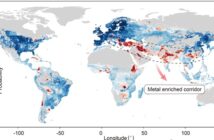The Agricultural Mortgage Corporation (AMC), part of Lloyds Banking Group, has launched a new loan to support farmers and rural businesses transitioning to more sustainable practices.
The Clean Growth Financing Initiative (CGFI) provides discounted lending to help the British agricultural sector reduce its environmental impact.
With a zero percent arrangement fee for eligible projects, the loan can be used to finance a broad range of green investments from the purchase of low-carbon machinery to renewable energy infrastructure.
Lee Baker, National Sales Director at AMC, says the new product will enable farmers and rural businesses move to and benefit from a low carbon economy. It is hoped the product will also advance sector improvements across priority areas including water, waste, energy use, carbon and greenhouse gas emissions reductions.
“CGFI can be considered for a wide range of sustainable and diversification investments options including energy supply upgrades such as solar panels and heat pumps, adding eco-pods or sustainable camping to their farm, enhancing wastewater treatment systems, or enable more sustainable production methods. These will help customers stabilise their energy costs and operate more sustainably, both in terms of the environment and financially, which are both vital steps towards future-proofing farms and businesses.” he adds.
AMC has also entered into a partnership with the Soil Association Exchange, offering a free-to-use platform to help farmers to implement transition practices across six critical farming areas: soil health, carbon, water, biodiversity, animal welfare, and social impact. This partnership facilitates access to financial incentives, supporting measures that make a tangible difference in the transition to greater sustainability as well as providing a consultancy service to AMC’s largest clients.
“The Clean Growth Financing Initiative is the perfect addition to our services, enabling us to support sustainable farming investments with the added benefit of a zero per cent arrangement fee, which helps to remove financial barriers to transition projects and potentially saving farmers and rural businesses thousands of pounds,” says Mr Baker.




